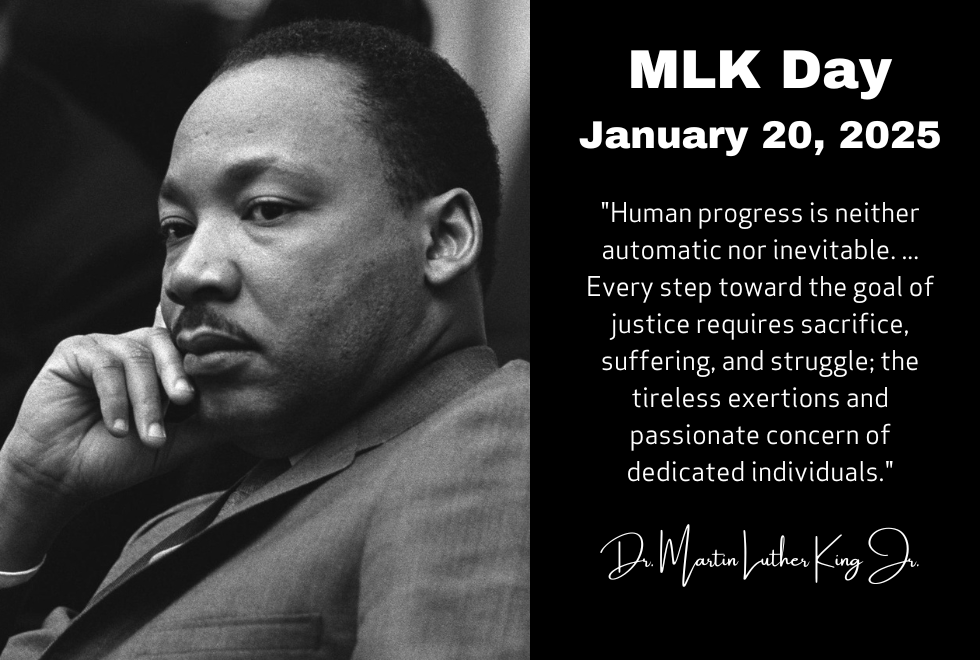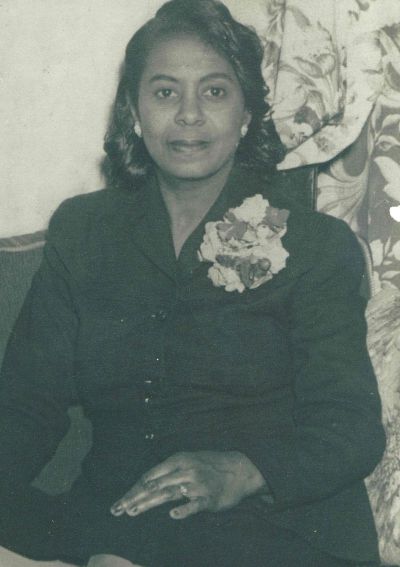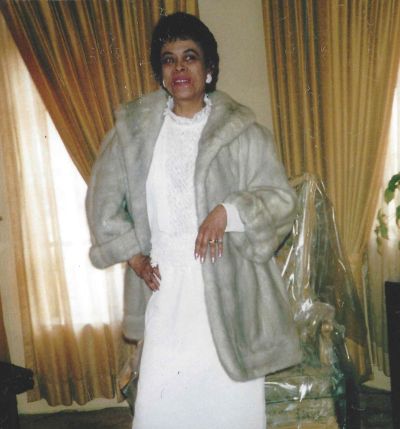
The setting was humble yet profound: our family home—the kitchen specifically, on the West Side of Detroit, Michigan. In that space, amidst the laughter, meals, and daily rhythms of life, the heart of our family gathered. It was there, whether standing or seated around a well-worn table, that stories were shared and critical lessons were passed down from one generation to the next. Our grandmother, Hattie Talitha Evans, born on December 26, 1897, and our mother, Dollie Norine Childs, born on December 30, 1932, were the pillars of our family, their voices reverberating with wisdom, truth, and a deep sense of responsibility to keep our heritage alive.
Photograph: Hattie Talitha Evans

Both women frequently spoke about inequality and what it meant to navigate the world as Black women in their respective eras. While Hattie was not a slave herself, she often recounted how her parents—and our grandfather’s parents—picked cotton. She shared how she worked tirelessly to care for her family, taking on odd jobs like washing and ironing “bundles” of clothes for white families. Each story she told was woven with moments of despair but also a sense of hope for a better tomorrow.
We talked openly about things like Brown v. Board of Education, the landmark ruling that declared racial segregation in public schools unconstitutional in 1954. We had discussions about the courage of Rosa Parks, whose arrest in 1955 ignited the Montgomery Bus Boycott and marked a monumental step in the Civil Rights Movement. Both women painted vivid pictures of the March on Washington in 1963, where Dr. Martin Luther King Jr. delivered his immortal "I Have a Dream" speech.
Each of these milestones served as a thread in the fabric of our identity. Our grandmother and mother made sure that we understood and were proud of our lineage—not just the pain and struggle but also the resilience and triumphs that defined them and now define us.
Photograph: Dollie Norine Childs

Dr. King once said, "We are not makers of history. We are made by history." For our grandmother, born before the turn of the 20th century, and our mother, who came of age during the height of the Civil Rights Movement, history was not abstract. History was lived, felt, and passed on through their stories. They believed, as Dr. King did, that "injustice anywhere is a threat to justice everywhere." And they instilled in us a responsibility to be torchbearers for justice - including environmental justice.
Their example, perseverance, wisdom, and strength taught us to stand tall in the face of racism and adversity. They reminded us that while progress has been made, the journey is far from over which is still true to this day. Dr. King’s dream—that "one day people would not be judged by the color of their skin but by the content of their character"—remains a dream deferred in many ways. Yet, our grandmother and mother’s determination fueled our belief in that dream. They showed us what it means to live with dignity, to fight for equality, and to never lose hope.
As we celebrate MLK Day, my seven siblings and I reflect on the shoulders upon which we stand. We honor Dr. King and the countless unsung heroes like our grandmother, grandfather, mother, and father who fought battles big and small so that we could dream bigger dreams. Their history is our heritage. Their strength is our foundation. Their wisdom is our guiding light.
I'm proud to continue my grandmother's and mother's legacy here at Clean Water Action where fighting for justice for all is at the heart of what we do.
How are you honoring Dr. King's legacy on MLK Day? We encourage you to take a moment to reflect—not only on Dr. King's powerful dream but also on the dreams you hold for a brighter future.


